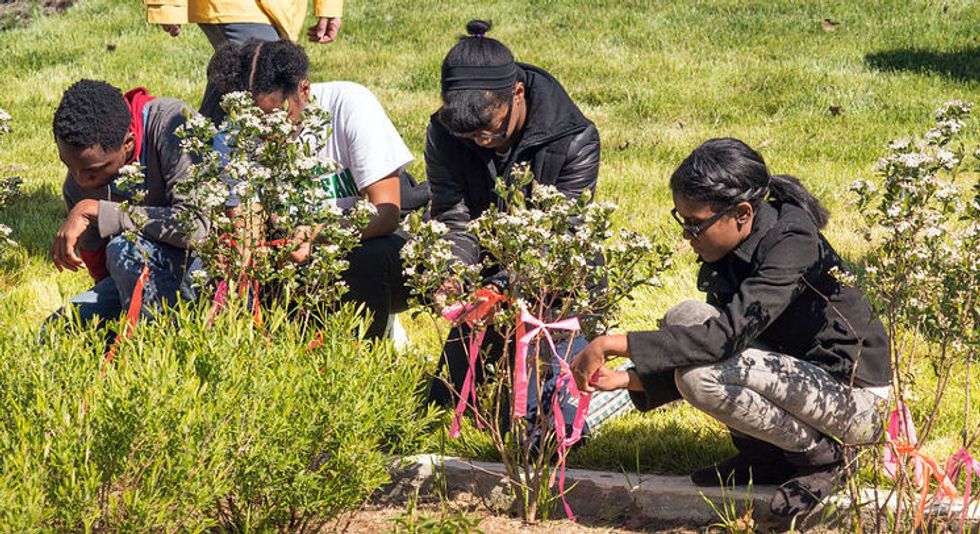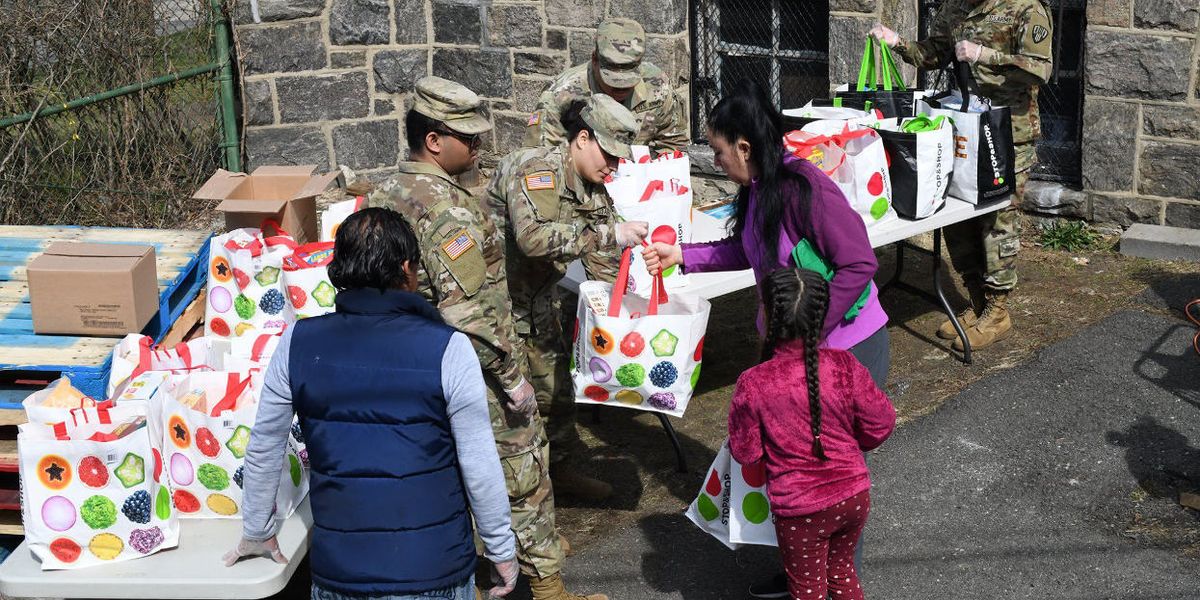Nate Hagens: Coronavirus exposes economic, cultural, environmental fallacies
Big-picture thinker Nate Hagens on the opportunities and constraints we face confronting coronavirus. His advice: Find your better self and play a role.
The novel coronavirus has laid bare many societal problems that have accreted over previous decades: chasms of inequality, the use of virtual debt to paper over physical world problems, ecological ignorance, addiction, obesity, fragile supply chains, fractured political governance, all in service of the growth.
We have chosen economic efficiency—think just-in-time inventory and a supply chain dependent on overseas shipping and China—over resilience. We have substituted technological stimulation—SnapChat, Fortnite, Netflix and the like—for social interactions.
And now we are throttling all this down, everything, to fight the virus. We are staring at possibly the worst economic and financial correction ever in modern times. Even President Trump and others are beginning new talking points that the cure is going to be worse than the disease.
But here's the thing: The disease we have is much bigger than the virus. Our political and financial systems are brittle and inflexible. Inequality is rampant. Our physical health is awful mostly because of lifestyle but partly because of ubiquitous exposures to toxics in plastics and consumer goods.
We can use this external throttling down of our metabolism as an opportunity—as individuals, society and a species—to arrive at a less crazy way of interacting with each other and the planet.
WATCH: Coronavirus impacts to energy use, the economy, and consumer behavior
There are no simple answers and we need to look systemically—we have arrived at a species level conversation. Let's have it.
We can emerge from this stronger and wiser.
A focus on community
I really hate the term "social distancing"—we need spatial distancing, with social bonding.
Now is the time to get on phone with people that live near you and begin conversations.
Even if you don't come up with concrete action plans this serves two purposes: 1) We are social creatures, and socializing reduces cortisol and stress responses, 2) We build trust, alliances, and cooperation that will be a central backbone of authentic community now and in the future.
What is needed in your community? Creating garden boxes of seedlings to be delivered door-to-door after social distancing is loosened, so people can plant gardens and grow a bit of their own food? Couple that with canning workshops and makerspaces, and sharing tools, and older citizens sharing knowledge with younger ones.
Have the "haves" in your community use their digital surplus to support and expand the commons—don't wait for government bailouts, do it locally.
This can include community land trusts, hoop houses, protecting ecosystems and protecting prime agricultural land from development.
Start a local currency—not as an alternative to the dollar, but as a way of building social networks.
For those able, let's use the crisis to bring about some good.
Cultural goals

Students gardening in a former vacant lot in Detroit. (Credit: University of Michigan School for Environment and Sustainability)
Here is the hope. We have so many amazing prosocial responses happening now: taking care of health care workers, donating masks, delivering food to the elderly, sharing knowledge, accelerating intellectual collaboration/peer review on the science of COVID-19.
How do we keep, and expand, on this emergent altruism in our culture?
The financial shock is going to be horrific. Like a shark, our markets need constant movement—economic growth—for oxygen. Stop the growth, and the markets, and our goods and services suffocate. We are rapidly approaching, if not already at, that point.
But let's be clear: The old "normal" sucked for many/most people. And it should be pretty clear, looking at our environment, that we cannot grow ad infinitum. A rethinking of all this could be a boon, provided basic needs are met.
Being mentally prepared for this is a first step. What makes us happy? What do we value? Do all of us really NEED to drive to work 5 days a week? Or are other arrangements possible?
Do we want a cultural goal of maximizing GDP or minimizing suffering and maximizing the wellbeing of our citizens and ecosystems? This crisis can be a wake-up call to a culture that has lost a reason for looking forward to the future.
Individual change
You may now realize you are not alive at normal times—what is it that you'd like to do the rest of your life?
Mental resilience is going to be extremely important.
Increasingly I hang out with people that meditate daily because it empowers them to be present with the real (crazy) world in a calm and balanced way.
Related: A pandemic, planetary reckoning, and a path forward
I made a 'Dopamine Sarcophagus' (a used ginseng container) to house my phone each night before I go downstairs. In a world with 24/7 access to news and craziness, find time to disconnect from the media entirely and live at a normal human pace.
Let's be smart, civil and tolerant. Change some tiny habits in your own life—today. Instead of focusing on stocking toilet paper, instead think of how you might be of service to your broader community.
Call someone and talk, make plans, form committees for local triage, offer your help to local civic organizations, help someone without them knowing, widen your circle of empathy and compassion, and be kind to yourself.
If you have physical/mental health and resources, please contribute to making your community better and stronger.
If you have significant resources, please make significant contributions—not just money, but building the network of real capital where you live.
This is one of those times when there is no natural leader to do these things so if not you, WHO?
A tiny beginning
These suggestions are just a tiny beginning. We first need to navigate the virus crisis, the financial crisis and the related social instability. While we do this we also need to take care of ourselves: Be kind. Be good. These things too are contagious.
It has taken Covid-19 to lay bare the fragility of our systems and also our ignorance of systems. Let's create a living open source project—where collective intelligence informs near- and intermediate-term mitigation, one that helps us as a culture navigate the narrow path between fantasy and doom. We need a clearinghouse of ideas and projects that work at various scales and timelines. This is the collaborative opportunity of our time.
I recently told a colleague that we vastly underestimate what young people are capable of. His response: "Nate, we underestimate everyone."
That hit pretty hard, because I immediately realized it's true.
A crisis is here, seek out your better self and play a role in solving it.
Nate Hagens is Director of EnergyandourFuture.org and teaches Reality 101 at the University of Minnesota







